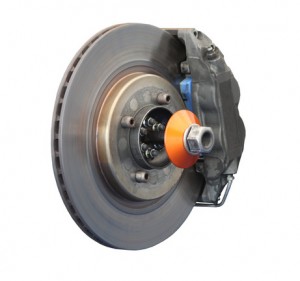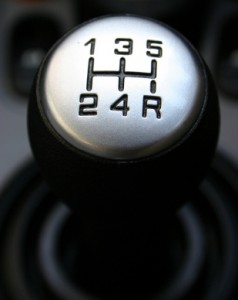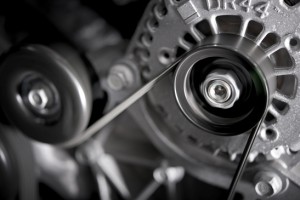Every once in a while, new technology is introduced into the automotive world, meaning new concepts are added to the world of purchasing cars and maintaining them over a lifetime.
Regenerative braking systems is one of those concepts. Regenerative braking was introduced when hybrid technology was introduced to the world of cars.
On a normal car, when you apply the brakes, the energy and heat of the action of braking dissipates and is wasted away. Not so with regenerative braking. Instead, when you apply the brakes, regenerative braking uses a mechanism that allows the vehicle to slow down while converting the resulting kinetic energy that is normally wasted into a useful form of energy. The energy and heat that is dissipated is instead converted and returned to the battery and reused in other systems throughout the vehicle. Because of this action, the battery is constantly being recharged, meaning the hybrid vehicle can go further on a charge without having to be returned to its outlet.
The concept of regenerative braking is still new and confusing to many. Imagine your car and what happens to it once you apply the brakes. The brake pads slowly apply pressure, creating heat from the friction of the pads and the tires slowing down. Energy is accumulated as the brake pads wear against the rotors. This energy is transferred to the vehicles electric motor, charging the battery in the process.
 Regenerative braking does however have its limitations. Typically this system is only available on the wheels that drive the vehicle – so for a front wheel driven vehicle, it only applies to the two front wheels. This means your vehicle is only generating power on these two wheels. Because more action and power is associated with these wheels, they will have more wear and tear on both the wheels and tires, and on the brakes and brake pads. Which means you may be replacing tires, brakes and brake pads on a more frequent basis than those on the rear of the vehicle.
Regenerative braking does however have its limitations. Typically this system is only available on the wheels that drive the vehicle – so for a front wheel driven vehicle, it only applies to the two front wheels. This means your vehicle is only generating power on these two wheels. Because more action and power is associated with these wheels, they will have more wear and tear on both the wheels and tires, and on the brakes and brake pads. Which means you may be replacing tires, brakes and brake pads on a more frequent basis than those on the rear of the vehicle.
Regenerative braking works best at greater speeds. The more friction needed to stop the vehicle, the more energy is created. So to get the most benefit from this system, a person should be more apt to driving at high speeds on an ongoing basis than slower, city driving.
Have any questions about your regenerative braking system? Stop by or give us a call. We can make sure your car is in top condition, no matter how old or new, green or otherwise.

 When it comes down to it, a car is a car. Yes, hybrids operate a little differently than your standard gasoline model. But hybrids still have a regular gas engine along with their electric aspects. Which means they will need routine maintenance just like any other gas vehicle on the road today.
When it comes down to it, a car is a car. Yes, hybrids operate a little differently than your standard gasoline model. But hybrids still have a regular gas engine along with their electric aspects. Which means they will need routine maintenance just like any other gas vehicle on the road today. In order to make sure your car is in top shape, don’t wait for a problem to occur. Instead, find a neighborhood car repair shop you can trust; one that will help you keep your car in great shape, and one that will give you reliable transportation for many years to come.
In order to make sure your car is in top shape, don’t wait for a problem to occur. Instead, find a neighborhood car repair shop you can trust; one that will help you keep your car in great shape, and one that will give you reliable transportation for many years to come. Unfortunately, criminals are getting more sophisticated in the way they prey on those that may be disadvantaged in some way. If a 75 year old woman always relied on her husband for maintaining the cars, her new “job” may be completely overwhelming, and she quickly trusts anyone who provides a smile and a simple “I understand”. Which of course may not be in her best interests.
Unfortunately, criminals are getting more sophisticated in the way they prey on those that may be disadvantaged in some way. If a 75 year old woman always relied on her husband for maintaining the cars, her new “job” may be completely overwhelming, and she quickly trusts anyone who provides a smile and a simple “I understand”. Which of course may not be in her best interests. So, instead of buying new, people are finding ways to take better care of their current car to extend its life. The maintenance is worth the money because more and more cars are staying on the highway well past 100,000 miles. Here are some tips to help you keep your current car rolling down the road.
So, instead of buying new, people are finding ways to take better care of their current car to extend its life. The maintenance is worth the money because more and more cars are staying on the highway well past 100,000 miles. Here are some tips to help you keep your current car rolling down the road. Regular maintenance can keep your car running at maximum efficiency. Just like everything in life, your car needs a little TLC to keep it at max performance. Performing regular, scheduled maintenance can keep your engine cleared out and running well, your tires full and functioning properly, your transmission in peak performance, etc.
Regular maintenance can keep your car running at maximum efficiency. Just like everything in life, your car needs a little TLC to keep it at max performance. Performing regular, scheduled maintenance can keep your engine cleared out and running well, your tires full and functioning properly, your transmission in peak performance, etc. Some cars are fancy, some are not; but they all have one thing in common…they get us where we want to go. Unfortunately, we tend to underestimate the needs of the car until much too late. Sometimes this means we are stuck with a costly bill that could be avoided, and other times, this means we are stranded at the side of the road wondering what to do. If you want to keep your car in good working condition, start being proactive in your car repair needs.
Some cars are fancy, some are not; but they all have one thing in common…they get us where we want to go. Unfortunately, we tend to underestimate the needs of the car until much too late. Sometimes this means we are stuck with a costly bill that could be avoided, and other times, this means we are stranded at the side of the road wondering what to do. If you want to keep your car in good working condition, start being proactive in your car repair needs. Yet your fuel system is actually a sophisticated system that keeps your entire automobile in good working condition. Think of it as the food to keep your car running. If any one of the parts breaks down, your engine will not run.
Yet your fuel system is actually a sophisticated system that keeps your entire automobile in good working condition. Think of it as the food to keep your car running. If any one of the parts breaks down, your engine will not run.
